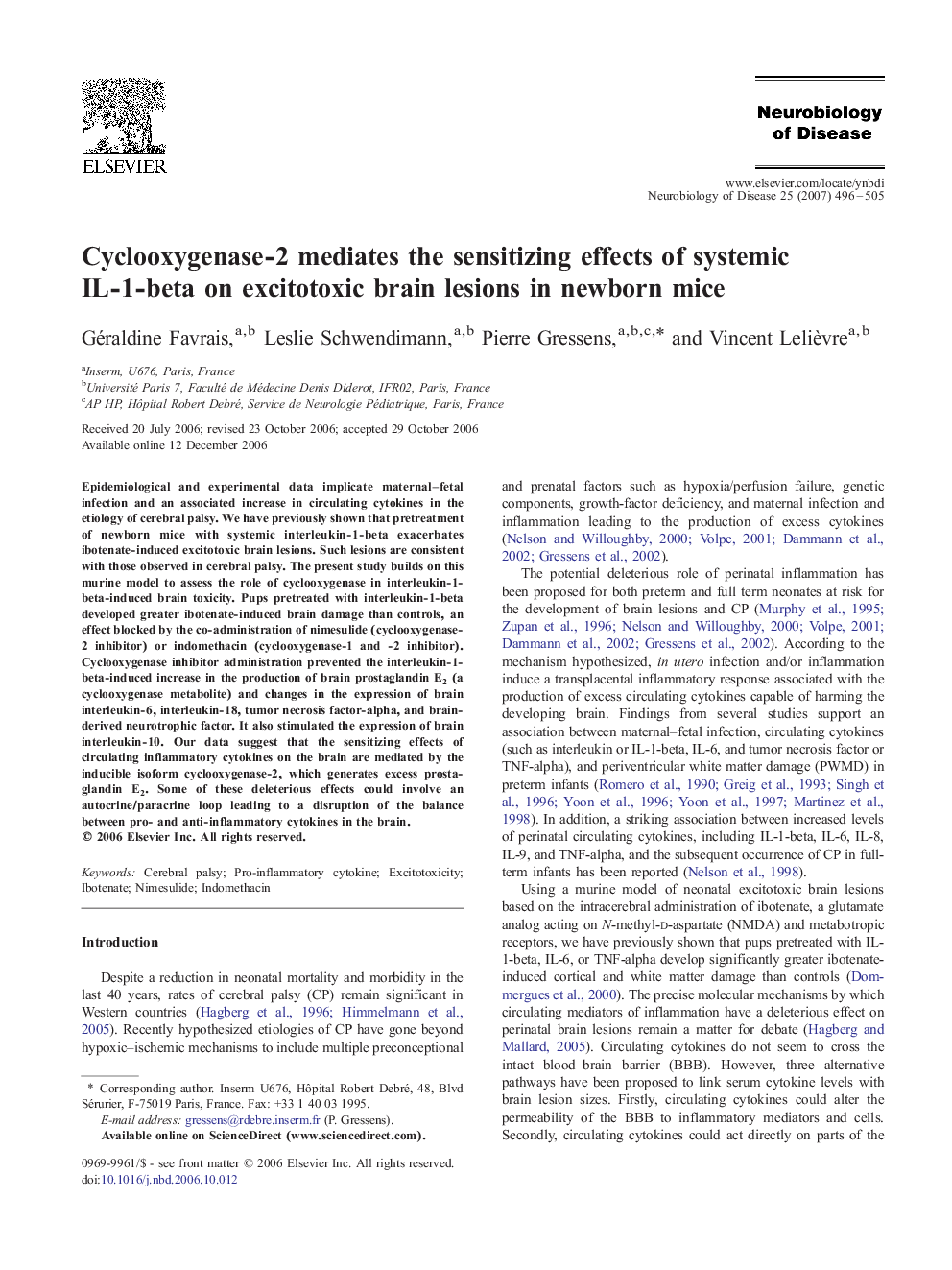| Article ID | Journal | Published Year | Pages | File Type |
|---|---|---|---|---|
| 3070766 | Neurobiology of Disease | 2007 | 10 Pages |
Epidemiological and experimental data implicate maternal–fetal infection and an associated increase in circulating cytokines in the etiology of cerebral palsy. We have previously shown that pretreatment of newborn mice with systemic interleukin-1-beta exacerbates ibotenate-induced excitotoxic brain lesions. Such lesions are consistent with those observed in cerebral palsy. The present study builds on this murine model to assess the role of cyclooxygenase in interleukin-1-beta-induced brain toxicity. Pups pretreated with interleukin-1-beta developed greater ibotenate-induced brain damage than controls, an effect blocked by the co-administration of nimesulide (cyclooxygenase-2 inhibitor) or indomethacin (cyclooxygenase-1 and -2 inhibitor). Cyclooxygenase inhibitor administration prevented the interleukin-1-beta-induced increase in the production of brain prostaglandin E2 (a cyclooxygenase metabolite) and changes in the expression of brain interleukin-6, interleukin-18, tumor necrosis factor-alpha, and brain-derived neurotrophic factor. It also stimulated the expression of brain interleukin-10. Our data suggest that the sensitizing effects of circulating inflammatory cytokines on the brain are mediated by the inducible isoform cyclooxygenase-2, which generates excess prostaglandin E2. Some of these deleterious effects could involve an autocrine/paracrine loop leading to a disruption of the balance between pro- and anti-inflammatory cytokines in the brain.
